Greetings cards for children show 'damaging stereotypes'
- Published
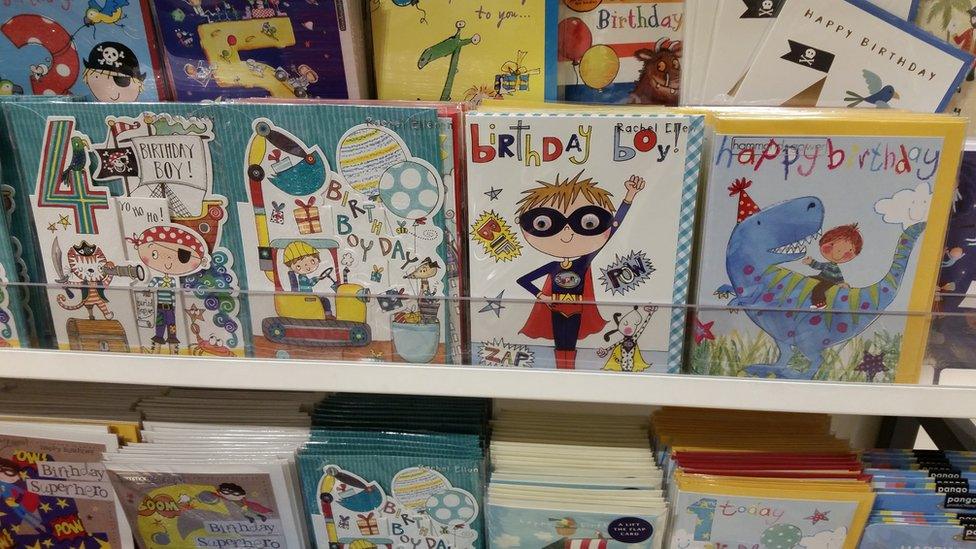
Why don't more cards show girls driving diggers?
Earlier this week former Conservative MP Sir Peter Luff was sent by his wife to buy a birthday card for her niece.
What he found in his local Waitrose appalled him: the cards were all pink ballerinas for girls, footballers and astronauts for boys. There was nothing that challenged those gendered stereotypes.
So he sent a quick tweet.
What followed was a vitriolic debate over the question of exactly what greetings cards should show.
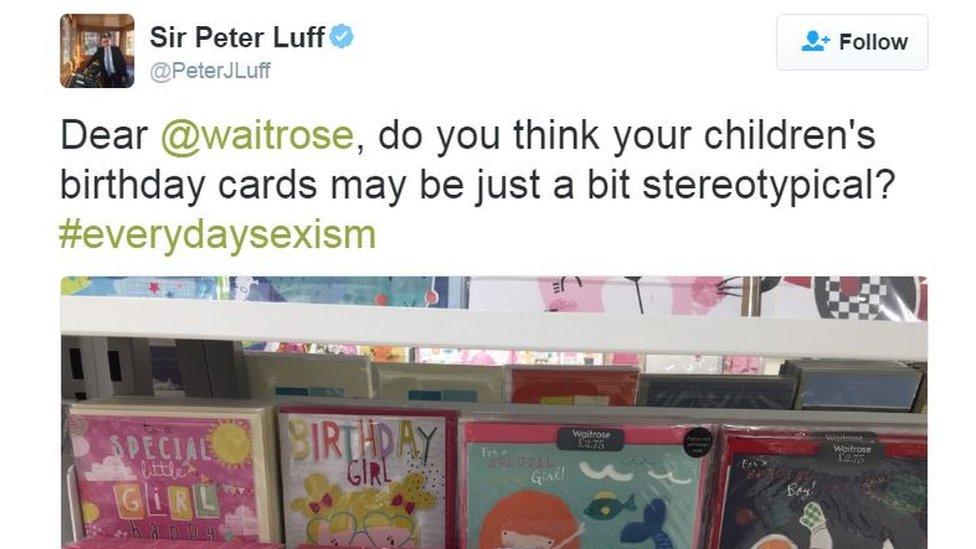
His initial tweet addressed publicly to the upmarket food store simply asked "Dear @waitrose, do you think your children's cards may be just a bit stereotypical?"
Sir Peter wasn't prepared for the online response, which included insults and sneers from people who thought the matter trivial or too prescriptive.
Several said they, or their daughters, liked pink and wanted to buy cards that reflected their femininity. Others agreed with him.

He hastens to clarify: "I'm happy for there to be pink cards with ballerinas on display. It's choice I'm arguing for, not banning or limiting options. Lots of girls I know would not want to be sent those cards."
"Some adults make assumptions about children that are patronising and wrong."
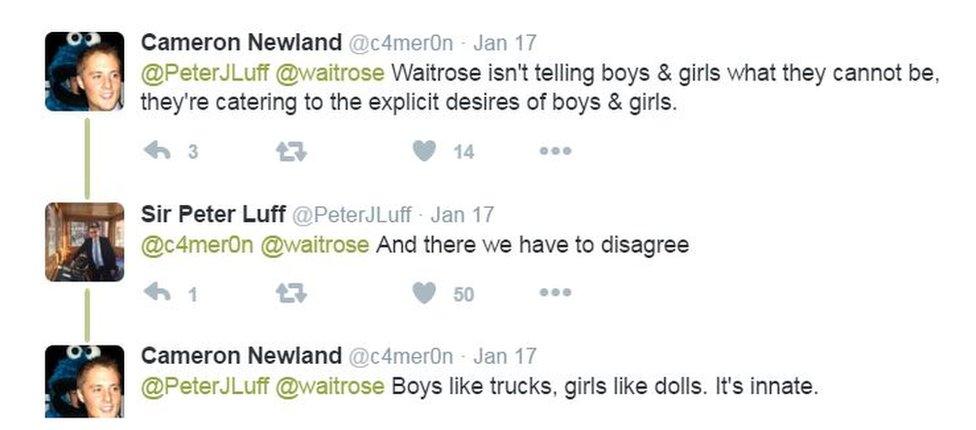

Waitrose responded that while many of their cards are already suitable for both boys and girls they are "constantly updating to reflect what our customers want to buy".
"We are currently working with our suppliers to explore how we can reflect a wider range of children's interests which aren't gender specific," said Waitrose press spokesperson, Gill Smith.
'Crude stereotyping'
In the meantime Sir Peter argues that the current preponderance of images of girls dancing, shopping and dressing up, while boys are shown having adventures and doing sport can have a subtle impact on children's future ambitions.
"This crude stereotyping does do harm. It limits aspiration, it shapes careers. If girls are told they should be ballerinas and boys astronauts and scientists it's damaging."
During his parliamentary career Sir Peter worked to encourage women to enter the engineering profession and persuaded magazines aimed at teenage girls to address their portrayal of women.
"We have lowest participation of women in engineering in Europe, probably the world. Our engineering companies are missing out on talent," he said.
The number and passion of responses - several hundred - indicates he may have hit a raw nerve. Already there have been outspoken campaigns against toy manufacturers that entrench stereotypes and some companies such as Lego have adapted their marketing as a result.
But it isn't an matter that has been discussed much within the greetings card business, at least not yet, according to Sharon Little, chief executive of the Greeting Card Association (GCA), the industry trade body.
Just ask
Ms Little says retailers decide what cards they stock, based simply on what they think their customers will buy.
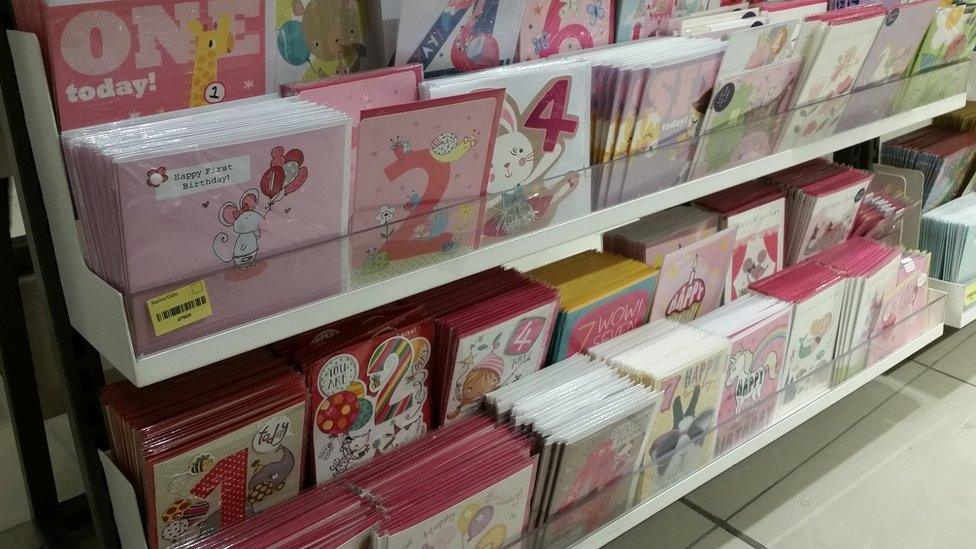
Even from an early age most girls receive cards that are pink and bunny-covered
So why don't retailers offer cards showing girls driving diggers and boys dancing?
"Maybe they don't sell in enough quantities," she suggests. But if customers want something different all they need to do is ask.
"They need to give feedback to the retailer, if they don't feel their needs are being met.
"Card publishers are producing new ranges all the time and they would be able to react very quickly."
And getting it right will pay off. The UK boasts a huge greeting cards industry, worth £1.7bn a year.
According to the GCA Brits buy an average of of 31 cards per person per year, and the vast majority, it is thought, by women.
- Published8 December 2016
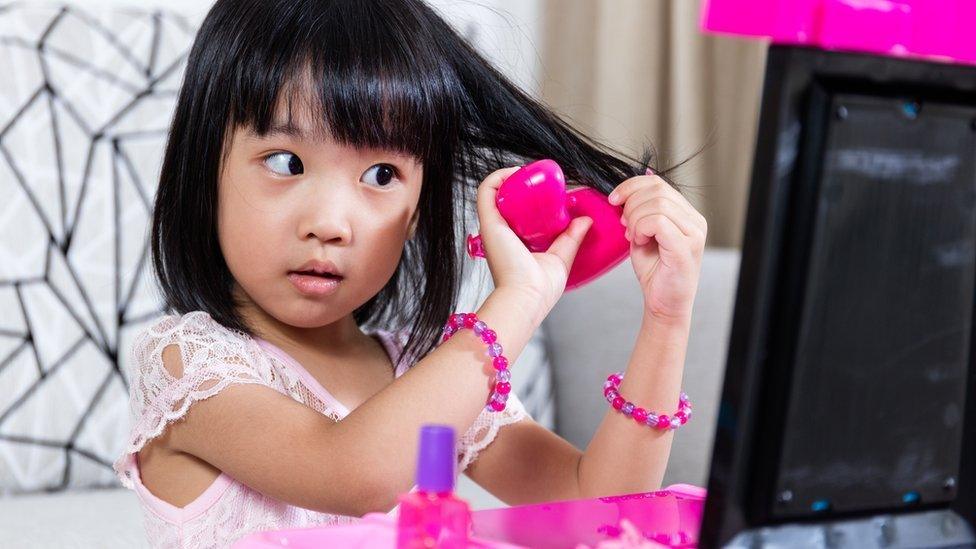
- Published7 November 2016

- Published5 February 2016
